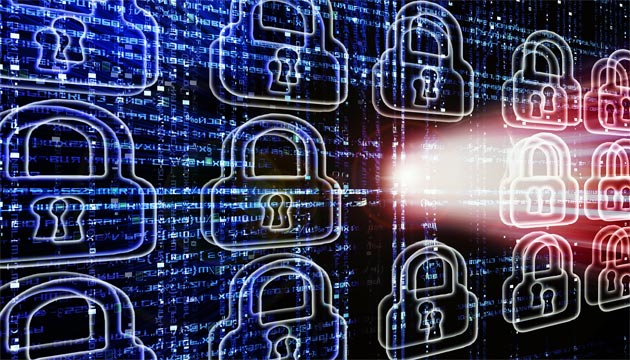
You would be hard-pressed to find a business that doesn’t use a computer in some way. While computers ease just about every aspect of your business, this usage makes every business a target to hackers. With the growth of the Digital Age, the sheer amount of viruses, spyware and malware out there that can destroy your business data is alarming. One seemingly simple and harmless “hello” email could wipe out all of your data and software. Even worse, your computer could get infected with spyware or malware that captures sensitive business information. Instead of worrying about whether your business will be the next victim of an attack, take a few minutes to learn how to protect yourself.
Think of a firewall as your outer castle wall and moat to your information…
Preventative Measures
Protecting your data is a fairly simple task if you take the right steps to ensure your computer’s safety.
Keep Your Firewall On
Think of a firewall as your outer castle wall and moat that will provide you with an extra layer of protection. While it may not stop all hackers, it will serve as a deterrent for many. If you have networked computers, your router will typically provide firewall protection. For single computers, you may want to look into firewall software if your computer doesn’t have any already.
Keep Software Updated
Often hackers can access your computer through outdated security holes in your software. Most companies offer updated versions to protect against any known security issues. That means making sure you stay updated on all of your software and your operating system. If you make this task a regular “to do” during your work week you should be able to stay up to date fairly easily.
Use Antispyware Software
Spyware allows hackers to see what you are doing on your computer. It can be used to collect data on you, your business and customers – as well as produce unwanted popups on your computer. You can add another level of security by making sure you have updated antispyware software installed.
Surf Smart
Email is an extremely popular method of distributing viruses, spyware and malware. It pays to pay attention to what you are getting. Never open an email from a source you don’t know and definitely don’t open any attachments from an unknown source. If someone you know is sending you an attachment that you weren’t expecting, verify with them that they sent it or run your email through a virus checker. This is especially true if it is a forwarded attachment. Many viruses spread by searching through a person’s contact information and then emailing the malicious code to everyone on your contact list.
This same logic applies to using the Internet. Don’t click on banners or ads that offer free merchandise or contests, unless it’s from a brand you trust. Many of these types of ads you see are fake and are used to install spyware or other malicious code.
If You Get A Virus
These tips from SCORE offer a sound strategy for dealing with a computer infection.
Isolate
If you suspect that you have been infected by a computer virus, unplug the infected computer from the office network. If the virus has spread to other machines, remove the network from the Internet to avoid spreading the virus. Some viruses can send copies of themselves automatically, so limiting exposure is critical.
Diagnose
Run a virus scanner program and a malware removal program to determine what is causing the problem. If your computer does not have a virus scanner, you will need to purchase and load one. There are many to choose from and costs range from free to under $100. Often, the virus program will identify the virus that you’re dealing with.
Treat
Virus scanning software can clean up the virus on your computer. 90 percent of the time, these programs will be sufficient enough to figure out the problem. However, when a virus is so new that there are no “definitions,” you will need to go to your vendor and look for new updates.
Learn
After putting out your virus fire, look for opportunities to enhance security on your computer or network. Make sure that your virus software is up-to-date and consider adding a personal firewall in order to provide additional protection.
Protect
Keep your virus software updated and renew annually. Always be sure to back up your computer systems to protect against the loss of important data.








